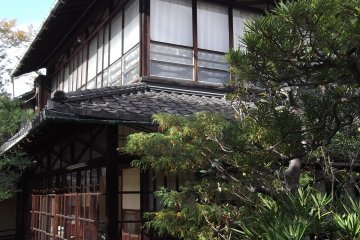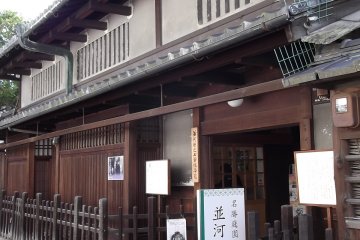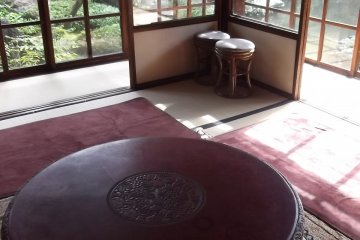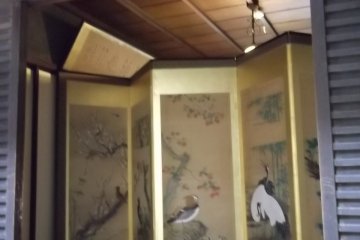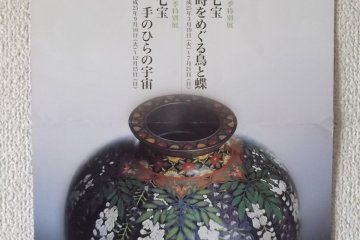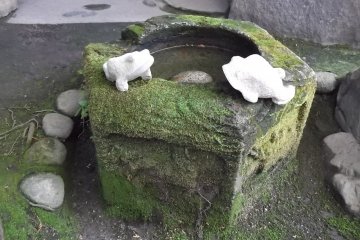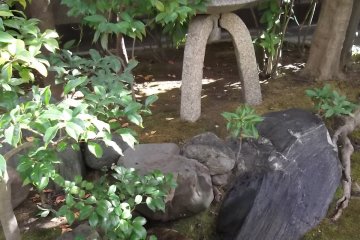Kyoto may be best known for its literally hundreds of temples and shrines, but they aren't all the city has to offer: there are also a good number of museums, both large and small, dedicated to a variety of arts and crafts. One little treat hidden away just a few minutes from Heian-jinja and Higashiyama subway station is the Namikawa Cloisonne Museum, a small but beguiling museum housed in the finely preserved former residence of Yasuyuki Namikawa (1845-1927), a leading artisan of the time.
Cloisonne is the craft of decorating metal objects with colored enamel, and Namikawa was known for a particular style known as 'Shippo', with raised gold lines framing bold, deep colors. The first few rooms of the museum have displays of his work, with a range of objects such as vases, perfume bottles, cigarette cases and trays; and though some of the objects are very small, the designs are quite beautiful, and the level of detail is breathtaking.
There are some simple designs, such as kanji characters, puffy clouds and scattered cherry-blossoms, while some are much more intricate, among them temples, complete landscapes with buildings, rivers and mountains, and spreading tangles of flowers, every petal clearly defined. The exhibitions change every few months, so you can see different objects every time you go throughout the year.
As well as the exhibition rooms there's also Namikawa's kiln and studio, where you can see the tools he used and a display giving details of the painstaking process of creation, which provides an interesting insight into the art, and really makes you appreciate his skill. A few rooms of Namikawa's house are also open, so you can pad around in your socks on the tatami and admire the view he had of the garden, which looks like it hasn't changed since he was living and working here. The garden is a compact but very restful spot, with room for a small pond, a few sculptures and plenty of greenery, and in good weather it's a nice place to sit on the wooden deck that runs around the house and take in the atmosphere.
The entrance fee may seem a little steep for a relatively small museum, but I found it to be definitely worth visiting for the beauty of the objects on display and the pleasant, peaceful surroundings, a step back in time into the Kyoto of the past.








